Contact center of the Ukrainian Judiciary 044 207-35-46
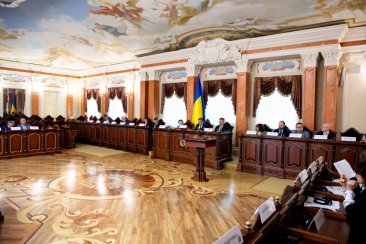
Stability and peace in the world depend on the ability of states to work together in accordance with international law and universally recognised principles. After the Second World War, the international community came together to find mechanisms to prevent similar tragedies in the future. However, despite all this, Russia's full-scale invasion of Ukraine has demonstrated the need to improve existing international mechanisms to ensure security against acts of aggression.
Stanislav Kravchenko, President of the Supreme Court, emphasised this point in his welcoming speech to the participants of the Third Annual Scientific Practical Conference ‘International Criminal Law in National and International Courts’.
'During the period of Russian aggression against Ukraine, which began in 2014, Russia has violated numerous international treaties to which Ukraine is a party. Thus, the aggressor country has disregarded the UN Charter, the Charter of the Council of Europe, most UN conventions, as well as other agreements and declarations, including the Declaration on the Principles of International Law adopted by the UN in 1970, which calls for strict adherence to the principles of international law. This unprecedented series of violations of international law requires an immediate and thorough assessment by the international community, as the number of war crimes committed by Russian troops on the territory of Ukraine is unfortunately increasing by the day,' the head of the Supreme Court said.
.jpg)
To date, nearly 1,900 criminal proceedings on war crimes have been transferred to local courts. Of these, more than 1,000 have already been reviewed by the courts of first instance, almost 100 have been reviewed on appeal and 11 have been reviewed in cassation. According to Stanislav Kravchenko, since the beginning of Russia's full-scale war against Ukraine, the national judicial system in general and the Supreme Court in particular have realised their responsibility to consider this category of cases. Therefore, the Ukrainian judicial community is now actively studying international experience in resolving similar cases and issues of international criminal and humanitarian law.
The SC President noted that while all criminal proceedings for war crimes are now being dealt with by national courts, Ukraine needs the support of the international community to ensure that justice is fully done. Such support is also extremely important for the establishment of a special international tribunal to bring to justice those who unleashed the aggressive war against our country.
'Understanding the humanitarian and legal consequences of Russia's aggression against Ukraine is an important step in restoring justice and international law and order. But for this to happen, we must continue to draw the attention of the international community to Russia's violations of international law, human rights and humanitarian law. Only together can we achieve a just peace and stability in the world,' said Stanislav Kravchenko.
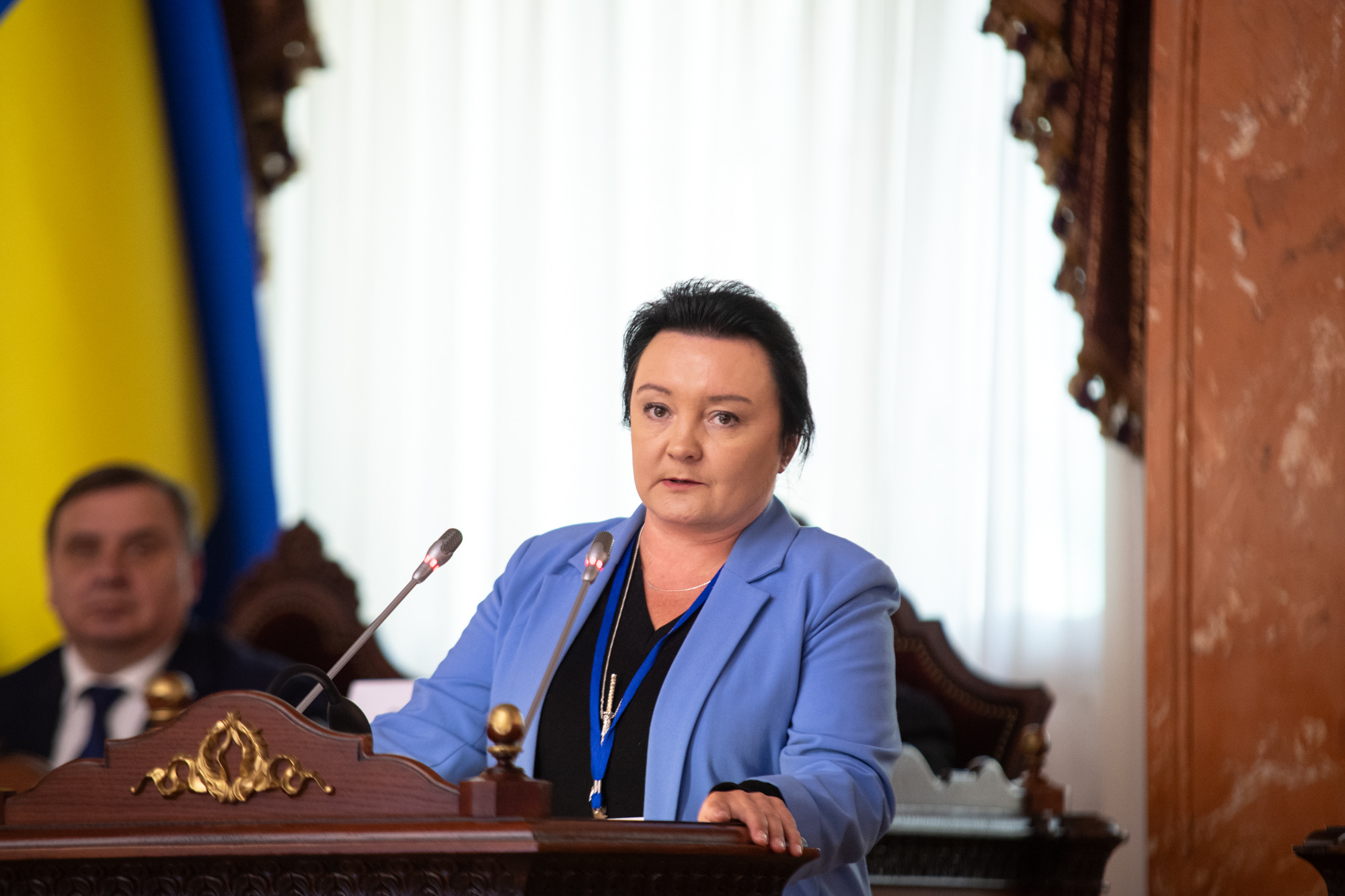
Olha Butkevych, President of the Ukrainian Association of International Law, welcomed the participants to the conference and stressed the importance of discussing the development of international criminal law. She observed that the past few decades had witnessed a period of significant advancement in the field of international criminal justice, with the establishment of numerous tribunals, hybrid courts, special commissions and courts during this period. In addition, the International Criminal Court began its work.
The speaker noted that one of the most important issues today is the establishment of an international tribunal for the crime of aggression of the Russian Federation and the Republic of Belarus. It has already been described as the second most important after the International Military Tribunal in Nuremberg, but there are certain differences. The trial of the Nazi criminals was an absolute breakthrough in international law. However, in addition to the unprecedented trial, a number of measures were taken to prevent the world from repeating the crimes of the states that initiated the Second World War, including a series of regulatory and institutional measures and amendments to the constitutions of these countries. These measures must be taken now, because punishing criminals without effective guarantees of non-recurrence cannot be considered an effective response to these gross violations of international law.
According to Olha Butkevych, systemic steps (institutional and regulatory) must now be taken to prevent violations of international law and the commission of international crimes in the future. The speaker also stressed the leading role of national courts in bringing perpetrators to justice. It is therefore important that the courts properly apply international standards of justice, particularly criminal justice, when considering these cases.
At the end of her speech, the UAIL President expressed her confidence that after overcoming this challenge, international criminal law will become even stronger, more effective and humane.
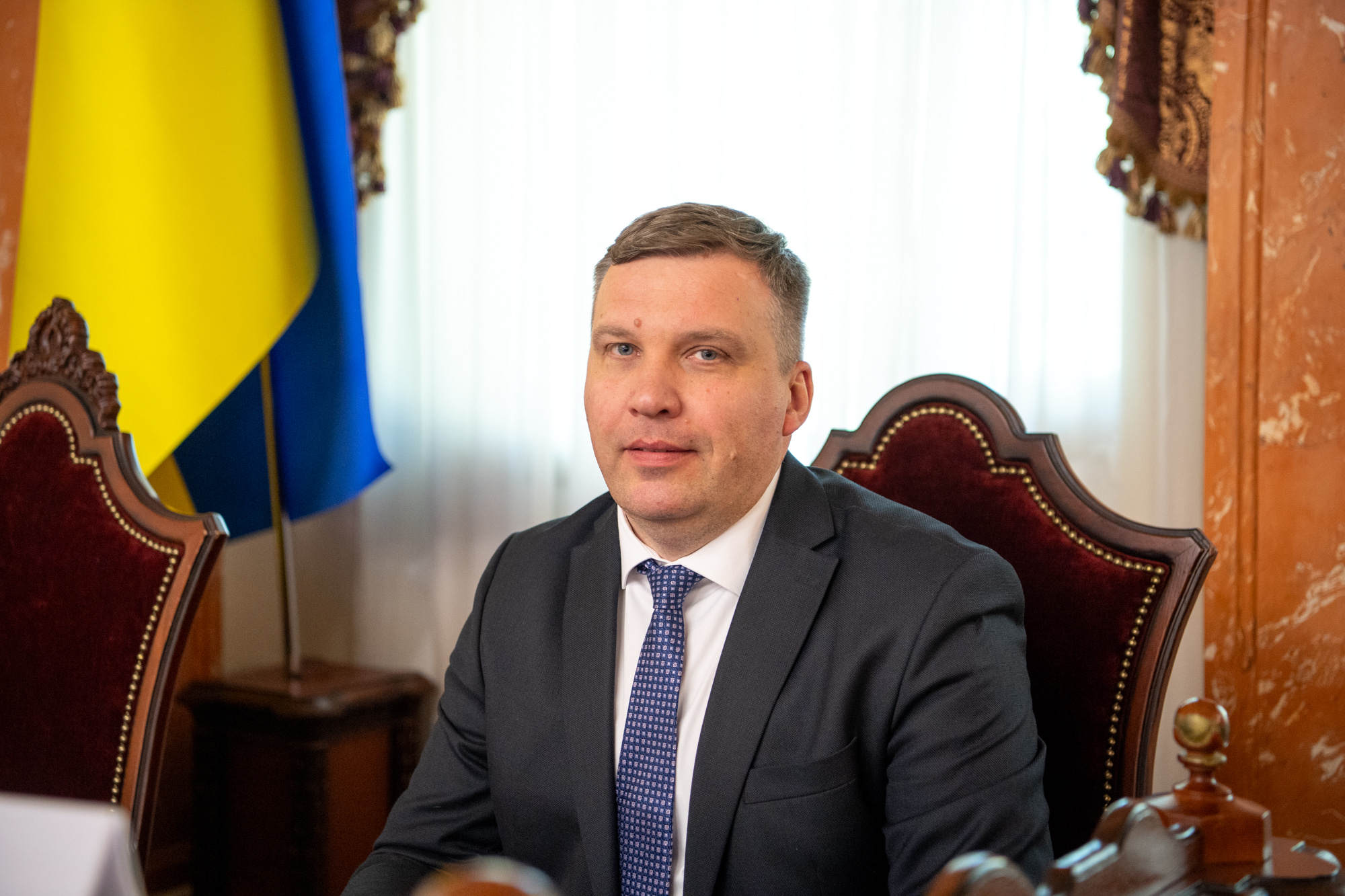
Liability for the crime of aggression against Ukraine in national and international criminal law
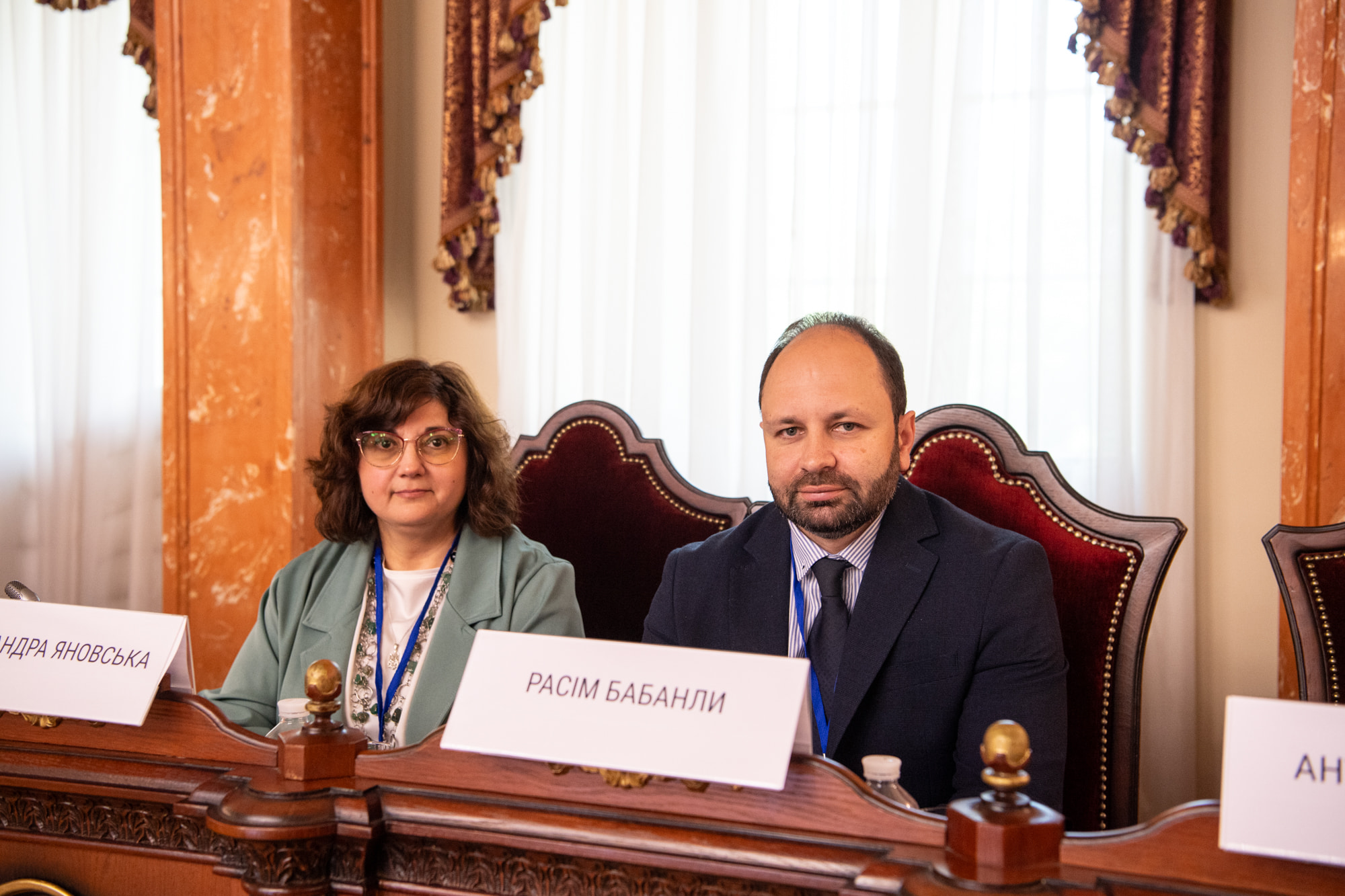
Moderating the first plenary session, Oleksandra Yanovska, Supreme Court Judge of the Criminal Cassation Court, noted that we are living in such a difficult time when the events taking place on the territory of Ukraine as a result of the aggressive actions of the Russian Federation are unprecedented in terms of cruelty, inhumanity and violation of all possible international norms. Consequently, the discussion of liability for the crime of aggression is of paramount importance, as this crime is the original crime that gives rise to all other crimes committed by the aggressor country. The international community has acknowledged the fact that the Russian Federation has committed military aggression against Ukraine. This is evidenced by numerous international documents. It is therefore important to understand how liability for this crime should be established.
The President of the Supreme Court, Stanislav Kravchenko, spoke about the legal position of the Grand Chamber of the Supreme Court on the application of Article 437 of the Criminal Code of Ukraine (planning, preparation, initiation and waging of aggressive war).
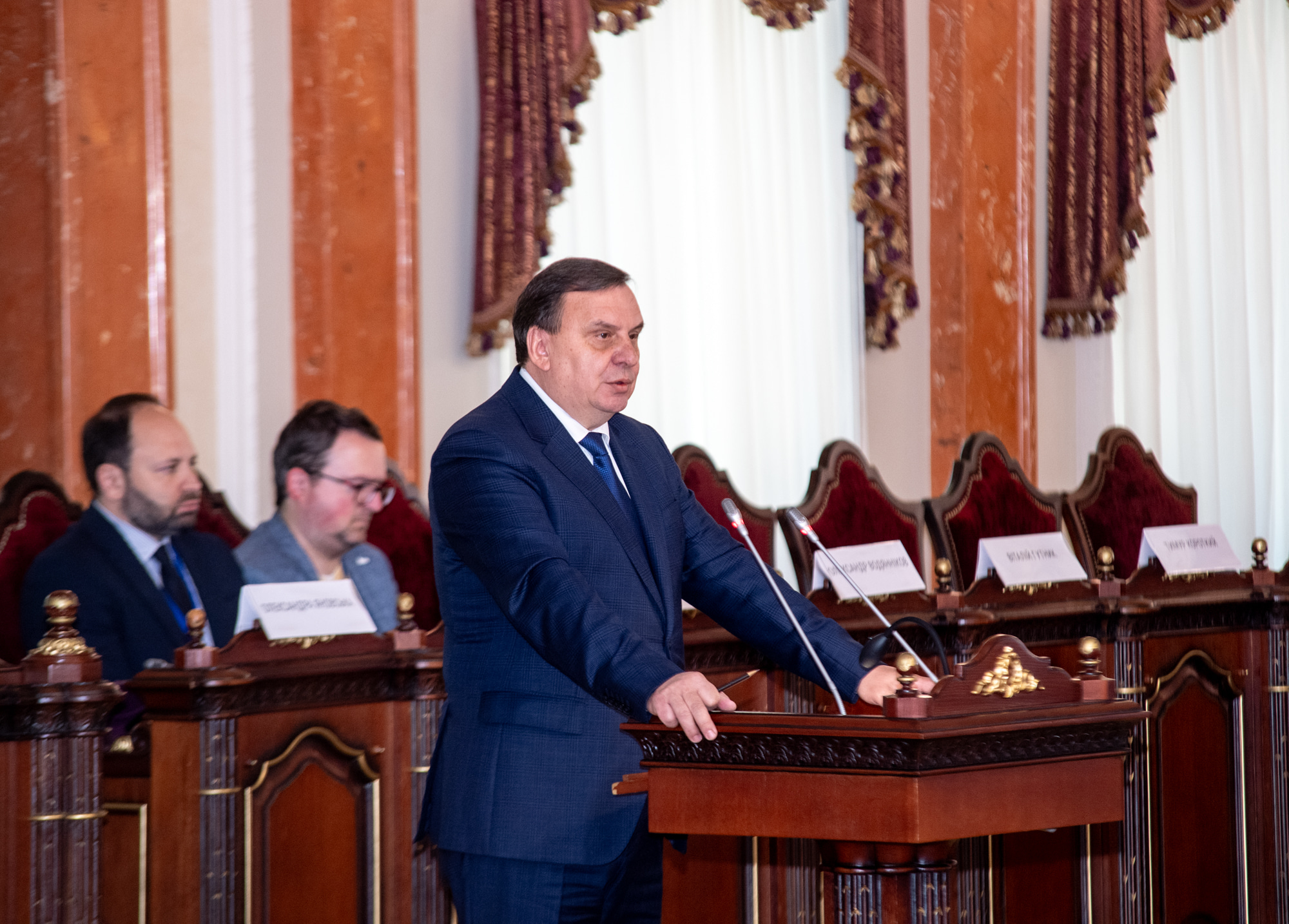
He stated that following the commencement of the aggressive war waged by the Russian Federation against Ukraine, a number of queries were raised regarding the clarity of the legislative wording of the elements of certain crimes from Chapter XX of the Special Part of the Criminal Code of Ukraine. In particular, the issue of the subject of a criminal offence under Article 437 of the Criminal Code of Ukraine was pertinent.
Accordingly, Article 437 of the Criminal Code of Ukraine, as currently drafted, provides for liability for planning, preparing or unleashing an aggressive war or military conflict, as well as for participation in a conspiracy aimed at committing such actions (Part 1), and waging an aggressive war or aggressive military actions (Part 2). This wording of the dispositions of the first and second parts of the said provision did not contain any restrictions or additional features of the subject of the criminal offence.
Stanislav Kravchenko noted that this created problems with the judicial interpretation of the said provision of the Ukrainian law on criminal liability. At the same time, this legislative gap was, among other things, drawn to the attention of the panel of judges of the Criminal Cassation Court in the respective criminal proceedings. Due to the existence of an exceptional legal issue, the case was referred to the Grand Chamber of the Supreme Court in order to ensure the development of the law and the formation of a uniform law enforcement practice.
In particular, the panel of judges considered the following question to be an exceptional legal problem: "Are persons who do not exercise the military and political leadership of the aggressor state, who do not have official authority or other opportunities to influence decisions on planning, preparation, initiation or conduct of an aggressive war, aggressive military actions, or control their implementation, but are involved as co-perpetrators in activities that essentially constitute participation in the conduct of such a war or military actions, subject to criminal liability under Article 437 of the Criminal Code of Ukraine?".
The SC President stressed that, indeed, in the theory of criminal law, academics have expressed two opposing approaches to determining the subject of the relevant criminal offence. The lack of consistent jurisprudence on this issue added to the urgency of the matter.
In this case, the SC Grand Chamber concluded that the acts defined in Art. 437 of the Criminal Code of Ukraine may be committed by persons who, by virtue of their official authority or actual public position, are able to exercise effective control over or direct political or military actions, and/or significantly influence political, military, economic, financial, informational and other processes in their own country or abroad, and/or direct certain areas of political or military actions.
In addition, the criteria for the subject of the crime under Art. 437 of the Criminal Code of Ukraine should be assessed from the point of view of the presence of a special element - the ability of a person by virtue of his position or social status to perform the relevant actions.
The conclusion of the SC Grand Chamber is in line with the principles of international law, which considers the crime of aggression to be a leadership crime and imposes responsibility for this crime on persons who are in a position to effectively control or direct the political or military actions of the state. At the same time, the wording regarding the subject of the crime of aggression in the decision of the SC Grand Chamber is broader than in international law.
Stanislav Kravchenko emphasised that the decision of the Grand Chamber of the Supreme Court was an important step in resolving the contradictions between scientists and forming a unified law enforcement practice on the subject of a criminal offence under Article 437 of the Criminal Code of Ukraine. This decision demonstrates Ukraine's efforts to implement international standards and principles in its domestic legal system. Moreover, such steps contribute to increasing confidence in the judiciary and are necessary for the effective protection of citizens' rights and freedoms, especially in the context of Russia's full-scale invasion of Ukraine.
.jpg)
Ambassador Extraordinary and Plenipotentiary of the Ministry of Foreign Affairs of Ukraine Anton Korynevych said that in connection with bringing to justice those responsible for waging war against Ukraine, the problem was that after the Nuremberg and Tokyo tribunals, international law no longer had a body to consider the crime of aggression. However, for more than a year a coalition (Core Group) has been working on the creation of a special tribunal for the crime of Russian aggression against Ukraine and is working on the best way to create such a tribunal. This coalition includes representatives of 40 countries and several international organisations. The International Centre for the Prosecution of the Crime of Aggression against Ukraine (ICPA), which operates in The Hague on the basis of Eurojust, has also been established to provide a common vision for the investigation of the crime of aggression. Such developments should form the basis of the work of the future special tribunal. According to the speaker, it is important to understand that the crime of aggression is a crime that embodies war as such and accumulates the common evil of all other crimes. Therefore, liability for the crime of aggression means liability for the entire war of the Russian Federation against Ukraine since the end of February 2014.
In this context, Anton Korynevych focused on the decision of the Grand Chamber of the Supreme Court of 28 February 2024 in case No. 415/2182/20. According to him, this resolution is a positive example of dynamic development on the part of the Supreme Court. In a situation where the legislator has unfortunately not yet been able to make appropriate amendments to the Criminal Code of Ukraine, the SC has shown that it can progressively interpret the law as it should be interpreted. In addition, the speaker said that during the regular meeting of the Core Group on 7 March 2024, all participants were interested in this decision of the Supreme Court. 'We have made a working translation of this resolution into English, which is available to all our international partners. This shows once again the importance of the issue resolved by the Grand Chamber of the Supreme Court,' said Anton Korynevych.
The discussion was also joined by Claus Kress, Doctor of Law, Professor, Director of the Institute for International Peace and Security Law at the University of Cologne. He informed the audience of the importance of individual criminal responsibility for the crime of aggression for the international legal order. In particular, the speaker focused on the correlation between international and national legislation in criminal cases concerning crimes of aggression in general. One of the challenges is proving the impartiality of Ukrainian courts in cases involving crimes of Russian aggression. Therefore, it is necessary to demonstrate to the international community that in such cases all international norms and standards of judicial proceedings, including those of national legislation, have been respected.
The academic also drew attention to the legal opinion of the Grand Chamber of the Supreme Court, formulated in the decision of 28 February 2024 in case No. 415/2182/20, on the application of the provisions of Article 437 of the Criminal Code of Ukraine. This decision is extremely important for the future judicial practice of Ukraine, as it concludes that the provisions of national legislation are in conformity with the standards of international law.

Oleksandr Vodiannikov, Senior Project Officer of the OSCE Support Programme for Ukraine, delivered a presentation entitled ‘Between Nuremberg and Kampala: Crimes against Peace in the Criminal Code of Ukraine and Case Law’. The speaker informed about three main points related to the crime of aggressive war:
In particular, Oleksandr Vodiannikov noted that crimes against peace take the following forms: the crime of aggressive war (under general international law - the Nuremberg definition) and the crime of aggression (under conventional international law - the Kampala definition). He also elaborated on the differences between these definitions.
According to the speaker, the definition of Art. 437 of the Criminal Code of Ukraine corresponds to the "Nuremberg definition" of the crime of aggressive war. Thus, Article 6 of the Charter of the Nuremberg Tribunal states: "...(a) Crimes against peace, namely, planning, preparing, initiating or waging a war of aggression or a war in violation of international treaties, agreements or assurances, or participating in a common plan or conspiracy to commit any of the foregoing acts".
The speaker noted that the resolution of the Grand Chamber of the Supreme Court of 28 February 2024 in case No. 415/2182/20 on the application of Art. 437 of the Criminal Code of Ukraine is the first decision of the highest judicial body to clarify important aspects of the crime of aggression. He also spoke about the novelties of the Supreme Court's decision in comparison with the decisions of the Nuremberg Tribunal.
International legal standards and practice of prosecuting war crimes in national criminal proceedings
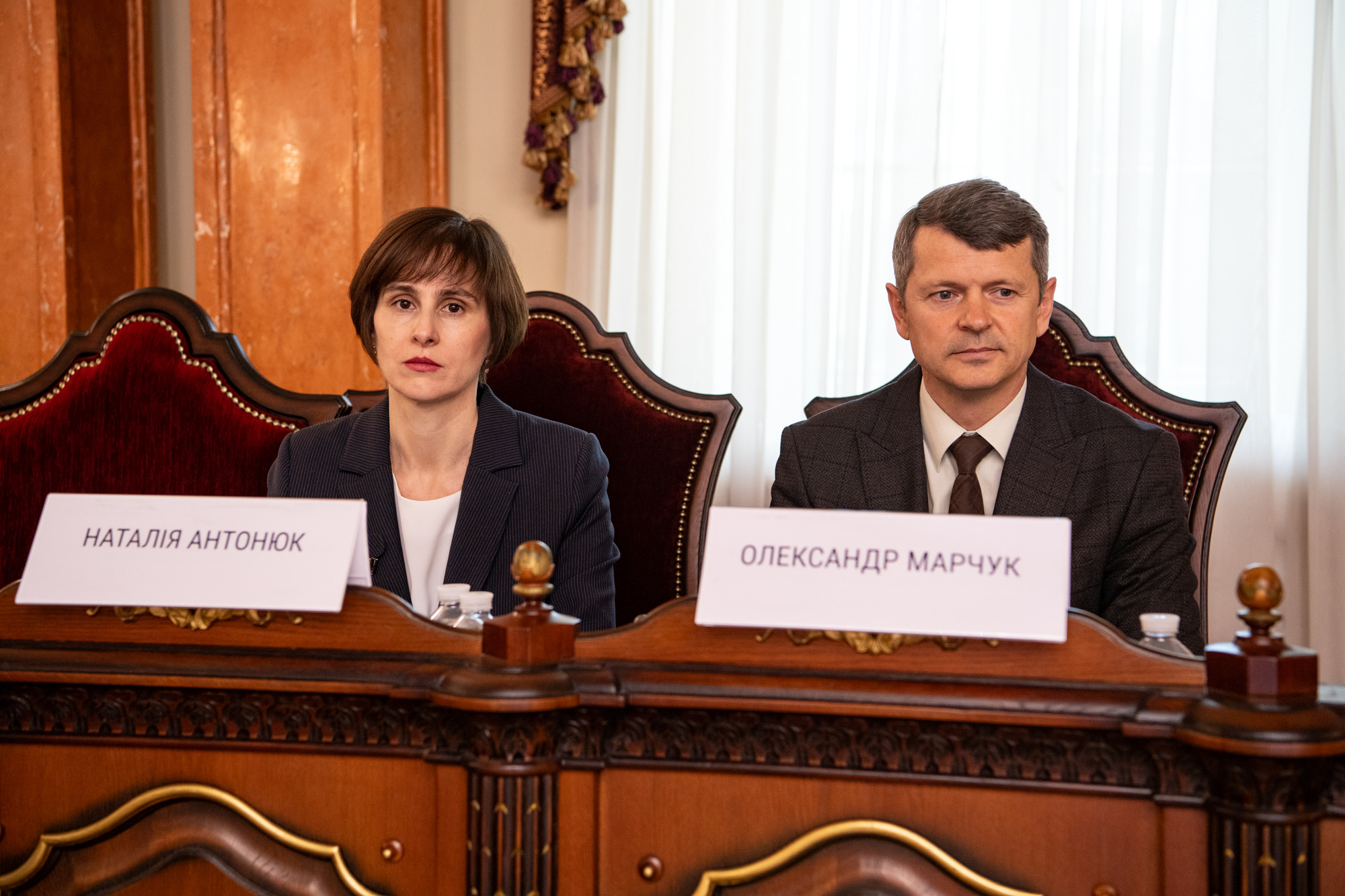
Opening the second plenary session, its moderator, Nataliia Antoniuk, Vice President of the Criminal Cassation Court of the Supreme Court, noted that it is currently the Ukrainian courts that are developing approaches that will be part of international humanitarian and international criminal law. 'In order to formulate practice and conclusions in the category of cases related to war crimes that will really give impetus to the development of international humanitarian and international criminal law, we need to study the relevant experience of foreign countries and the practice of the ECtHR. Then the decisions of Ukrainian courts in war crimes cases will be a reliable basis for the development of further research in this area,' added Nataliia Antoniuk.
Mykola Hnatovskyi, Judge of the European Court of Human Rights from Ukraine, first of all pointed out that the legal opinion of the Grand Chamber of the Supreme Court of 28 February 2024 in case No. 415/2182/20 is an example of how the Supreme Court, relying on international law, can solve problems that are not sufficiently regulated by legislation. This is a positive development, because, according to the speaker, Ukraine will only be strong if all war crimes are prosecuted in accordance with the current state of customary international law and human rights law. Regarding the ECtHR's practice in cases related to national prosecution of war crimes, Mykola Hnatovskyi explained that such practice will develop with the understanding that in matters of prosecution of war crimes, states do not lose their procedural obligations arising, in particular, from Articles 2 and 3 of the Convention for the Protection of Human Rights and Fundamental Freedoms. All the criteria for an effective investigation developed by the ECtHR should be applicable. At the same time, taking into account objective circumstances, the Convention does not impose on the state heavy or unrealistic obligations. Therefore, when examining cases related to the prosecution of war crimes, the ECtHR will focus on whether the minimum standards of an effective investigation, such as independence, adequacy and timeliness of the investigation, have been met.
Krešimir Kamber, Senior Lawyer at the Registry of the ECtHR, spoke on the topic ‘The obligation to investigate and prosecute war crimes: the case of Croatia’. The lawyer spoke about the problems the country had to face when applying to the ECtHR and why the Court considered only 28 cases of war crimes investigations. He analysed individual cases related to the military conflict with Yugoslavia. The speaker also noted that the Committee of Ministers of the Council of Europe decided on 16 March 2022 to expel Russia from the organisation, and that the ECtHR therefore temporarily suspended consideration of all complaints against that state, which also creates difficulties in bringing its citizens to justice.
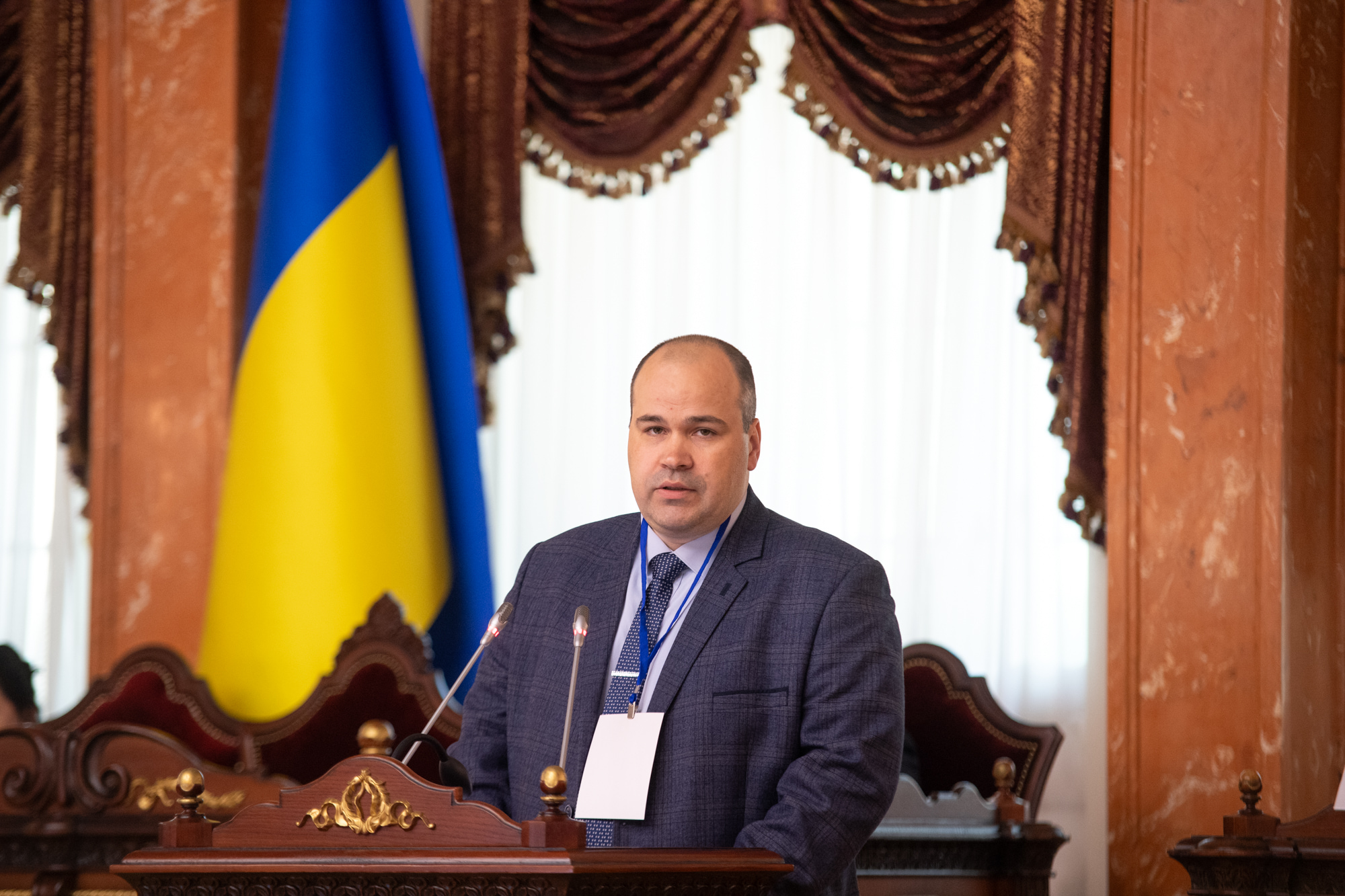
Mykola Mazur, Judge of the Grand Chamber of the Supreme Court, highlighted the issues of judicial practice on war crimes. He noted that as of 16 May 2024, according to the Prosecutor General's Office, more than 130,000 crimes of aggression and war crimes had been registered. And during the full-scale invasion, according to the Unified State Register of Court Decisions, local general courts delivered approximately 80 war crimes verdicts. 100 per cent of the verdicts passed under Article 438 of the Criminal Code of Ukraine were guilty. Most of the verdicts concerned ill-treatment (41), seizure of property (26), 12 verdicts were passed on the murder of civilians and a prisoner of war, and 11 on illegal detention.
Mykola Mazur spoke about the cases of:
The judge of the Grand Chamber of the Supreme Court outlined the challenges faced by the courts in adjudicating war crimes cases. One of these challenges is the imperfection of substantive law, in particular Article 438 of the Criminal Code of Ukraine. According to the speaker, it is important in this context to formulate court decisions correctly, as the quality of the latter will determine whether claims against Ukraine will be submitted to the ECtHR. Today, according to Mykola Mazur, there is a trend towards improving the quality of court decisions.
Another challenge, as outlined by the speaker, pertains to the necessity of guaranteeing the quality of consideration of proceedings conducted under the in absentia procedure.
The issue of command responsibility of commanders and superiors under international criminal law, namely the challenges for Ukrainian courts in cases under Article 438 of the Criminal Code of Ukraine, was highlighted by Mykola Pashkovskyi, a researcher at the Academician Stashys Scientific Research Institute for the Study of Crime Problems of the National Academy of Sciences of Ukraine. He observed that one of the elements of the degree of responsibility of commanders is the extent to which they were involved in the process of committing war crimes and whether they reacted accordingly. This includes whether they were directly involved in their commission, were accomplices and instigators, or tried to prevent them. International humanitarian law establishes the responsibilities of commanders (Articles 86, 87 of the Protocol Additional to the Geneva Conventions of 12 August 1949, and Relative to the Protection of Victims of International Armed Conflicts (Protocol I), of 8 June 1977). Accordingly, there are several approaches to defining command responsibility of commanders for failure to fulfil these duties, namely: as a separate type or form of responsibility, or as a separate criminal offence. In his speech, the researcher also reviewed national judicial practice in resolving these issues and explained the difficulties in qualifying crimes.
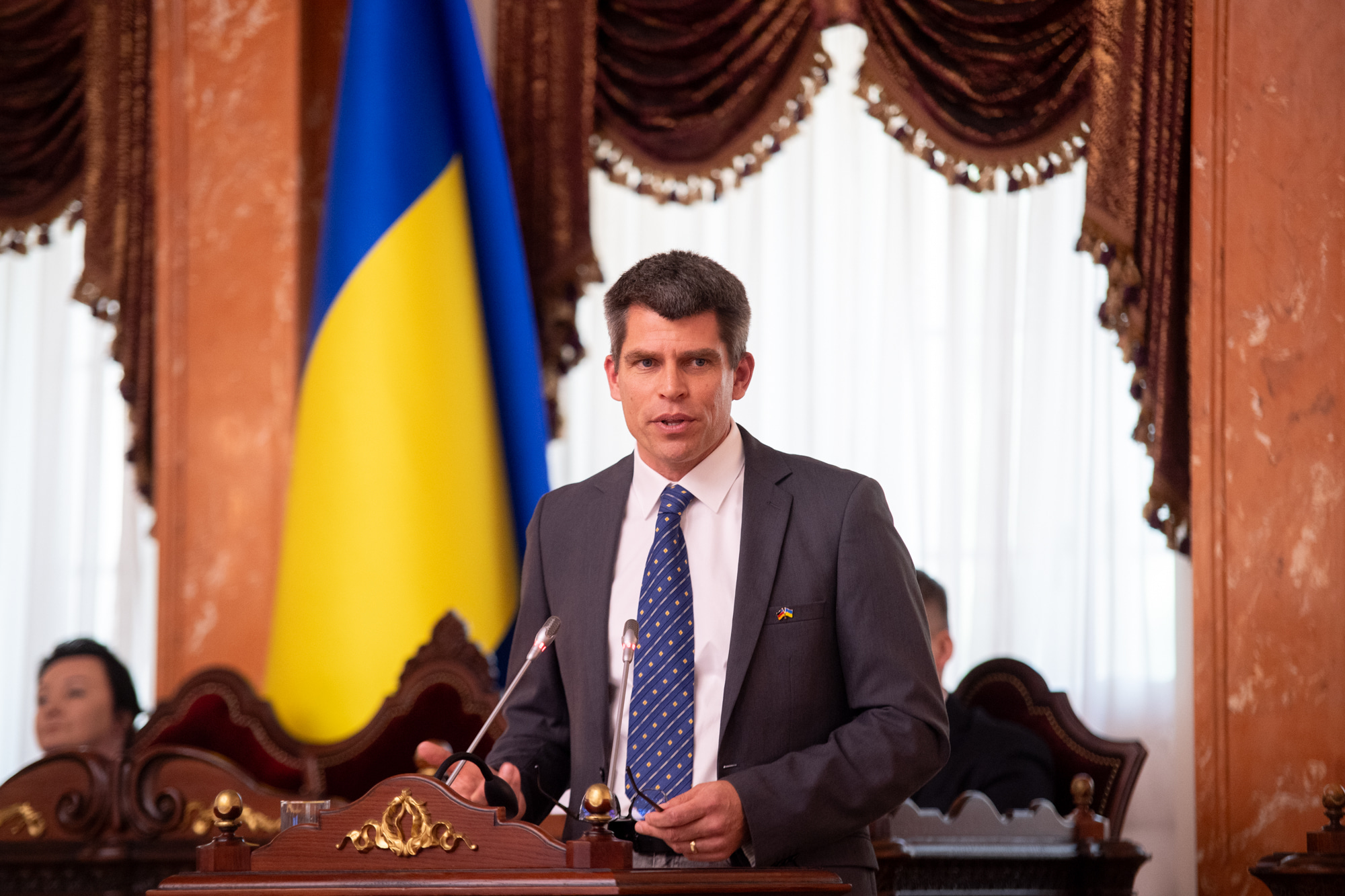
Klaus Hoffmann, Senior Prosecutor, Member of the Advisory Group on International Crimes, shared best practices and lessons learned in handling war crimes cases in Germany. According to him, the German parliament decided to implement the Rome Statute of the International Criminal Court in 2002 into a separate Code of Crimes against International Law.
At the same time, the speaker stressed that German courts refer to international law when interpreting such concepts as ‘torture’, ‘ill-treatment’, etc.
Klaus Hoffmann informed that the German parliament is currently considering a draft law that would amend the Code of Crimes against International Law. For example, there are plans to strengthen victims' rights; to introduce new crimes already provided for in the Rome Statute (sexual slavery as a war crime, new prohibited means of warfare); to expand access to interpretation for the international media and to make court decisions available in English in a common database (given the importance of national jurisprudence on international crimes); and to promote video-recording of important war crimes trials for scientific or historical reasons.
The speaker also identified the challenges that arise in war crimes proceedings: language barriers, lack of access to the crime scene, lack of prior understanding of the local cultural, political, religious and economic context; access to witnesses, assessment of their credibility; vulnerable witnesses or victims; quality and value of documentary evidence from different states.
The International Criminal Court: current realities
The moderator of the third plenary session, First Deputy Chief of Staff of the Supreme Court Rasim Babanly, noted that the International Criminal Court plays a key role in the process of bringing war criminals to justice, so it is important to understand its role in the overall architecture of international law, taking into account the cases already pending before the Court in accordance with its mandate and the specifics of Ukraine's cooperation with the ICC.
The challenges faced by the International Criminal Court and the prospects for the Court's work were highlighted by ICC Judge Iulia Motoc. According to her, one of the difficulties that the ICC has faced and is facing is determining the ICC's method of work, given the hybrid system of this Court, consisting of customary and civil law. Other challenges for the ICC include the sometimes lengthy duration of trials, with some lasting eight and ten years; a complex, multi-level governance structure; inadequate cooperation with the ICC from states that do not extradite persons subject to arrest warrants; the security of judges; and cyber-attacks on the Court. The prospect of the ICC's work, as Iulia Motoc noted, is that the Court is now the central international institution for issues related to the crime of aggression.

Mykola Hovorukha, a representative of the Department for Combating Crimes in the Context of Armed Conflict of the Prosecutor General's Office, briefed participants on the main aspects of Ukraine's cooperation with the ICC and the practice of using other mechanisms to investigate the most serious crimes currently being committed in Ukraine. One of the achievements of cooperation with the ICC was the addition of a relevant section to the Criminal Procedural Code of Ukraine, which regulates Ukraine's international legal cooperation with the institution. The speaker also drew attention to the fact that Ukraine, unlike other countries, conducts investigations directly during the armed conflict, and not after its completion, which introduces certain peculiarities in cooperation with the ICC and investigations in particular. He also noted that law enforcement and the judiciary are severely overburdened by the large number of war crimes reported, and added that support from international partners is crucial. Thanks to the cooperation between the Prosecutor General's Office and the ICC, four arrest warrants for Russian leaders have already been registered and further areas of work have been outlined.
Vitalii Hutnyk, Professor of the International Law Department of Ivan Franko National University of Lviv, highlighted the issue of war crimes in the practice of the International Criminal Court. In his words, the primary responsibility for prosecuting war crimes lies with the states where such crimes have been committed. Because no matter how powerful the ICC is, no matter how many staff it has, no matter how efficient the ICC office in Ukraine is, the ICC will not be able to bring all war criminals to justice.
The speaker described five ICC verdicts in cases:
Fabricio Guariglia, Director of the Hague Office of the International Development Law Organisation, noted that the specificity of war crimes and crimes against humanity is that they involve many people and the links between them are not always clear. Thus, the task of the criminal procedure is to decipher all this and clearly describe such connections. For example, in one of the cases, the ICC was guided by the theory of indirect commission of a crime. This theory means that it does not matter whether the suspect/accused was personally present at the scene of the crime and physically committed it. For example, in order to determine who is responsible for the attacks on Ukraine's civilian infrastructure, it is necessary to identify, first of all, those who developed the policy of such systematic destruction and control the will of the direct perpetrators of the crime. In addition, the speaker mentioned that the ICC now allows prosecutors to submit alternative charges to the Court, and the judge can choose one of them.
Criminal liability for environmental offences
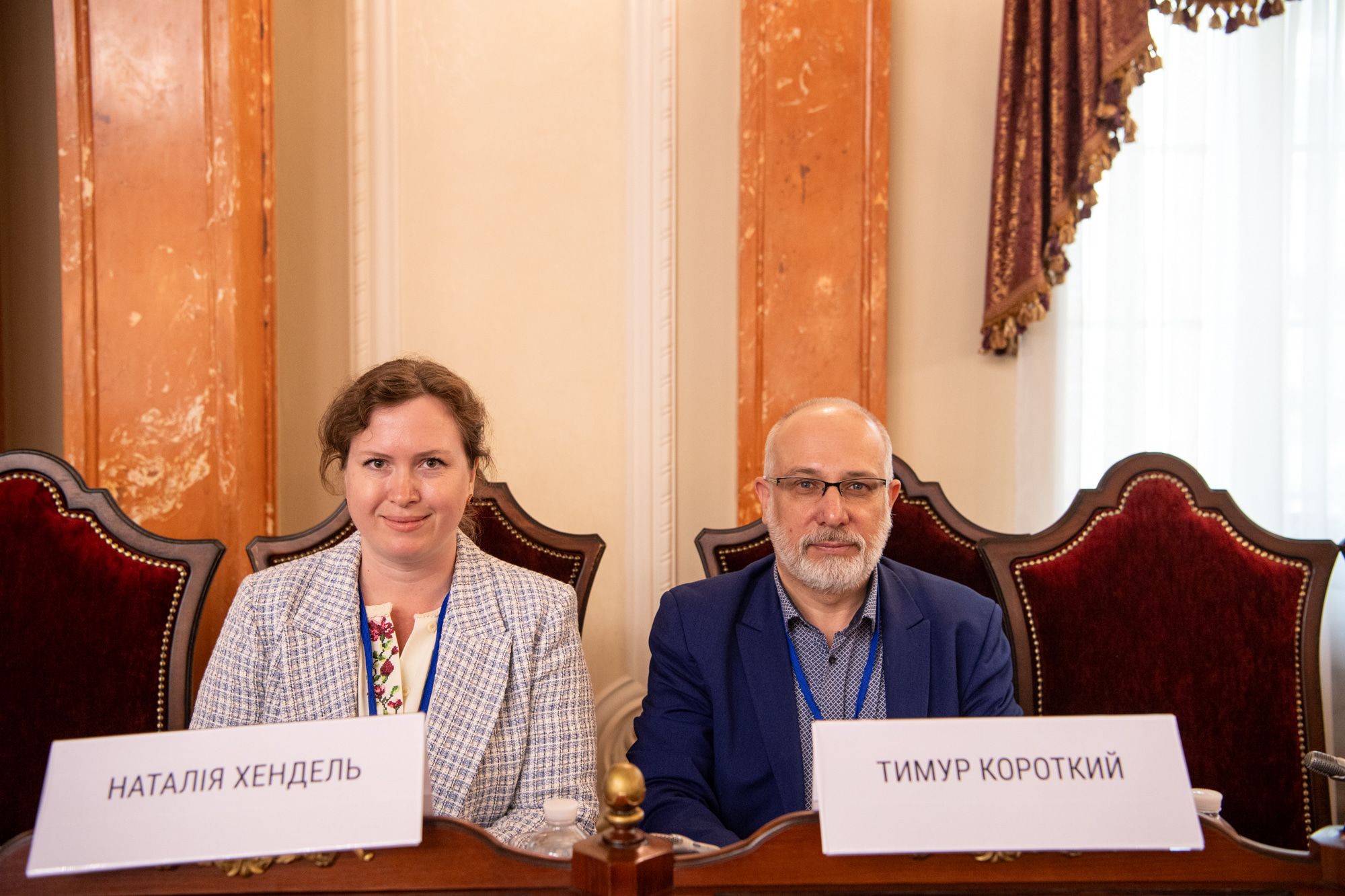
The fourth plenary session was moderated by Nataliia Hendel, Coordinator of the Centre for International Humanitarian Law of the Ukrainian Association of International Law. She emphasised that Ukrainian legislation contains provisions that allow individuals to be held liable for crimes against the nature (Article 441 of the Criminal Code of Ukraine). However, the consequences of environmental impacts are transboundary, so Russia's actions on Ukrainian territory during the armed conflict also affect other countries. Today, the damage that has already been done to our country's environment prompts the international community to become more active in bringing to justice those responsible for ecocide crimes.
In her speech, UAIL President Olha Butkevych examined the crimes of ecocide through the prism of national and international law. She noted that the issue of punishing for ecocide committed during war is a relatively new one, as it is only relatively recently that humanity has begun to use technologies that can cause serious environmental damage during conflict, including weapons of mass destruction. This is one of the reasons why the legislation of many countries still does not contain provisions to regulate this issue. In addition, the negative consequences of such impacts on nature are not always immediately apparent - sometimes they are slow in coming and affect entire generations. Another problem is that, according to Article 8 of the Rome Statute of the ICC, environmental damage is considered only as part of war crimes, not as an independent crime, which is a disadvantage. Now, however, also in the context of the Russian-Ukrainian war, negotiations are already underway on the prospects of considering the crime of ecocide as a separate norm of the Rome Statute.
According to the speaker, environmental protection should be an end in itself and a value in itself. Regulation of legislation in this area will make it possible to eliminate gaps in international law and bring to justice both individuals and the state under whose orders crimes were committed.
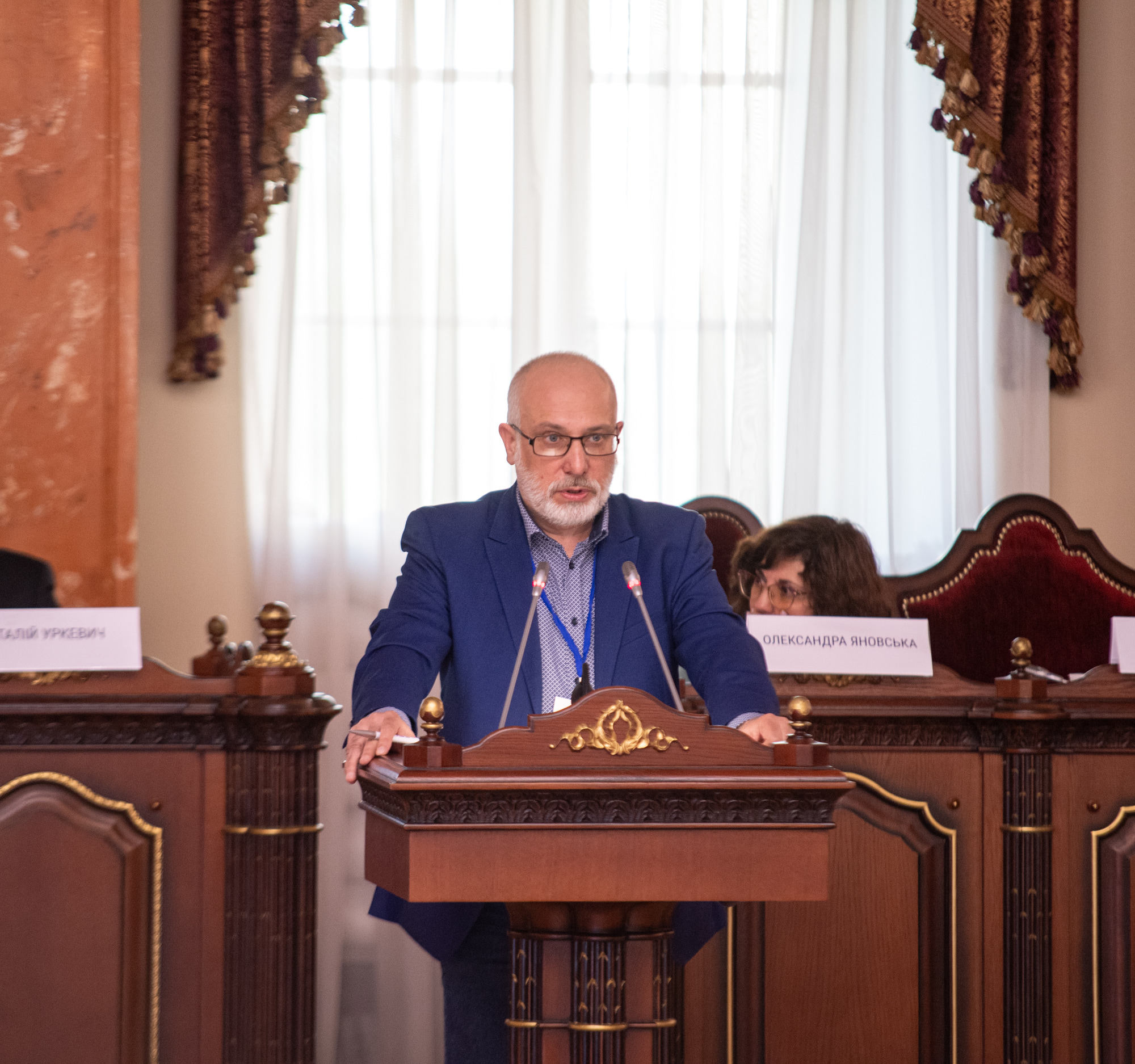
Tymur Korotkyi, Vice President of the UAIL, delivered a report ‘Ecocide as a crime under national law’. According to him, Ukraine's experience in prosecuting war crimes against the environment and the crime of ecocide is of great importance not only for ensuring the inevitability of punishment for war crimes, but also for promoting the concept of the crime of ecocide and criminal liability for it at the national and international levels.
The speaker stressed that the aggressor state is responsible for any damage caused by aggression, regardless of its criminal classification. This is a peremptory norm of international law. This damage includes damage to the natural environment, and no additional qualification under international humanitarian law or other international legal regimes is required.
Tymur Korotkyi noted that Article 438 of the Criminal Code of Ukraine provides a wide range of possible tools for qualifying and prosecuting representatives of the aggressor for war crimes against the environment. At the same time, in order to ensure the legitimacy of the use of these instruments, it is important that the norms of international humanitarian law are correctly applied with regard to the existence of all elements of a crime, taking into account the Rome Statute of the ICC, the ICC Elements of Crime and the relevant practice of international courts and tribunals as international standards.
In conclusion, the speaker stressed that it is Ukraine that is currently influencing the development of international law on the crime of ecocide, and that this crime cannot be reduced either to ordinary environmental crimes (as this reduces the concept of the crime of ecocide to nothing) or to general environmental damage. The crime of ecocide is a specific criminal law qualification that has a direct link to criminal law and should be applied taking into account international humanitarian law and the qualification under Article 438 of the Criminal Code of Ukraine.
Kate McIntosh, professor at the University of California, spoke about the process of criminalising the crime of ecocide at the international level. She said that an expert group of lawyers from different countries had developed a definition of ‘ecocide’ to add this crime to the Rome Statute of the ICC. According to this definition, ecocide is unlawful or unreasonable acts committed with the knowledge that there is a substantial likelihood of serious, widespread or long-term environmental damage caused by such acts. However, such changes have not yet been made to the Rome Statute, so, as the speaker noted, it would be good if, for example, Ukraine, at a meeting of the Assembly of States Parties to the Rome Statute, officially proposed that the definition of the crime of ecocide be enshrined in this Statute, which would make it possible to bring to international criminal justice those who have committed environmental crimes.
Wayne Jordash, Managing Partner of Global Rights Compliance, focused his speech on the qualification of the crime of destruction of the Kakhovka HPP, which occurred on 6 June 2023. In addition to significant environmental damage, it has caused many deaths and disappearances, destroyed buildings and caused other damage. In addition, as a result of the explosion, many species of animals living in the area were on the verge of extinction. That is why it is necessary to thoroughly document and investigate this crime so that the perpetrators are held accountable for their actions. According to the expert, the destruction of the dam can be considered a crime in several categories: destruction of a civilian object, destruction of state property and a ban on the use of weapons. Among other things, the demolition of the dam is a violation of Article 49 of the Additional Protocol to the Geneva Conventions (Protocol I). It is also worth taking into account the long period of restoration of the region's ecological system, which will take at least 30 years.
.jpg)
Video recording of the conference:
- in Ukrainian: https://www.youtube.com/watch?v=ftSWh9-kFgs;
– in English: https://www.youtube.com/watch?v=1UrNLjbWAKU.
The event was organised by the Supreme Court jointly with the Ukrainian Association of International Law and the OSCE Support Programme for Ukraine.